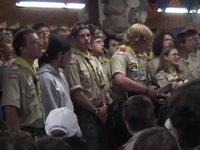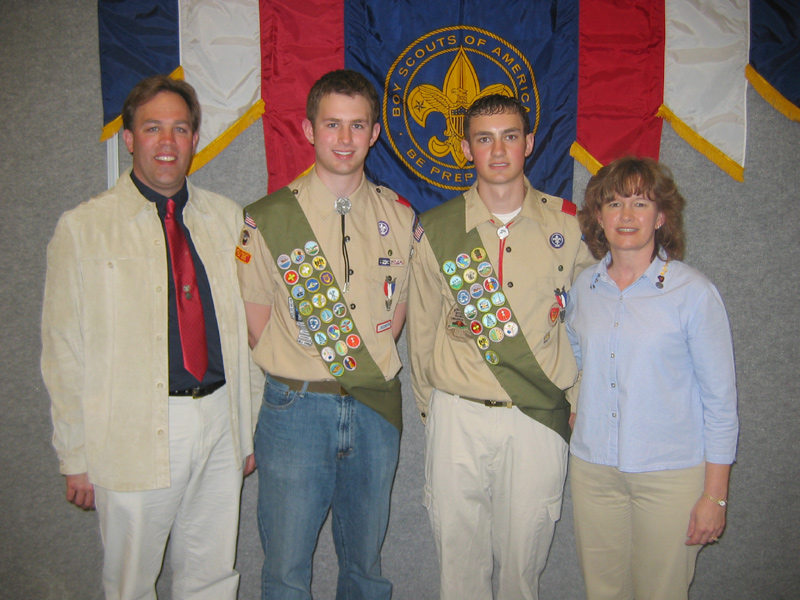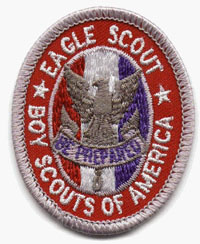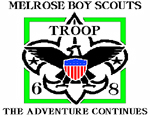The Black Forest is an original campfire horror story developed in the 1980’s by the members of Melrose Troop 68. It all began with a couple of the Boy Scouts writing a poem while on a camping trip. The poem described the deaths of four people, each death occurring in a different manner. It was a short poem, but one that served well as the foundation for the story of The Black Forest.
The story changes a little each time I tell it to the troop, but the basic plot remains the same. If I am tired and not really in the mood the story is quicker, shorter. On one of those nights when I am in a groove, then look out! New bits may be added to the storyline and the details become more graphic. The television of the mind can really go into overdrive during one of those evenings.
The story opens with George, the central character, when he receives a notice that a distant, nearly unknown relative has died and left him a cabin located deep in a remote wilderness area. George, his brother, and his parents decide to pack up, drive the couple hundred miles, and spend the weekend at the cabin that they have never been to before.
As they near the forest they drive into a huge thunderstorm. The downpour cuts the visibility as the father carefully drives the car through the thickening forest. The dirt road becomes so narrow and and overgrown with weeds that it appears to be nothing more then a wide animal trail.
As the family finally arrives at the cabin the rain is coming down so hard that the group almost expects to see an ark float by the ravine located about fifty yards away from the building. At least the nearly continuous lightning helps to light the way as they unload the car of supplies, although the thunder makes it difficult to carry on any sort of conversation.
Luckily, the four room cabin has electricity and light as the family begins to unpack the groceries, bedding, and clothing. The rooms consist of two small bedrooms, a small bathroom, and a larger great room which seems to take half of the cabin. Toward the end of the great room is a small kitchenette. It would be a cozy little getaway if the weather would cooperate.
Suddenly, lightning strikes a tree near the cabin. The thunder rattles the windows to nearly the breaking point. As the winds howls around the cottage, the family hears a tree crash to the ground. And the house goes dark as the electricity goes out.
As the story continues the members of the family leave the relative safety of the cabin, one by one. One by one, they disappear. Soon George finds himself alone in this dark cabin in the middle of the wilderness during a storm to end all storms. George finally makes a decision and….
Sorry to cut the story short, but you really did not expect me to write the whole thing in this blog, did you? But now that I have your attention I would like to take a moment to wish you a happy and safe Halloween!







